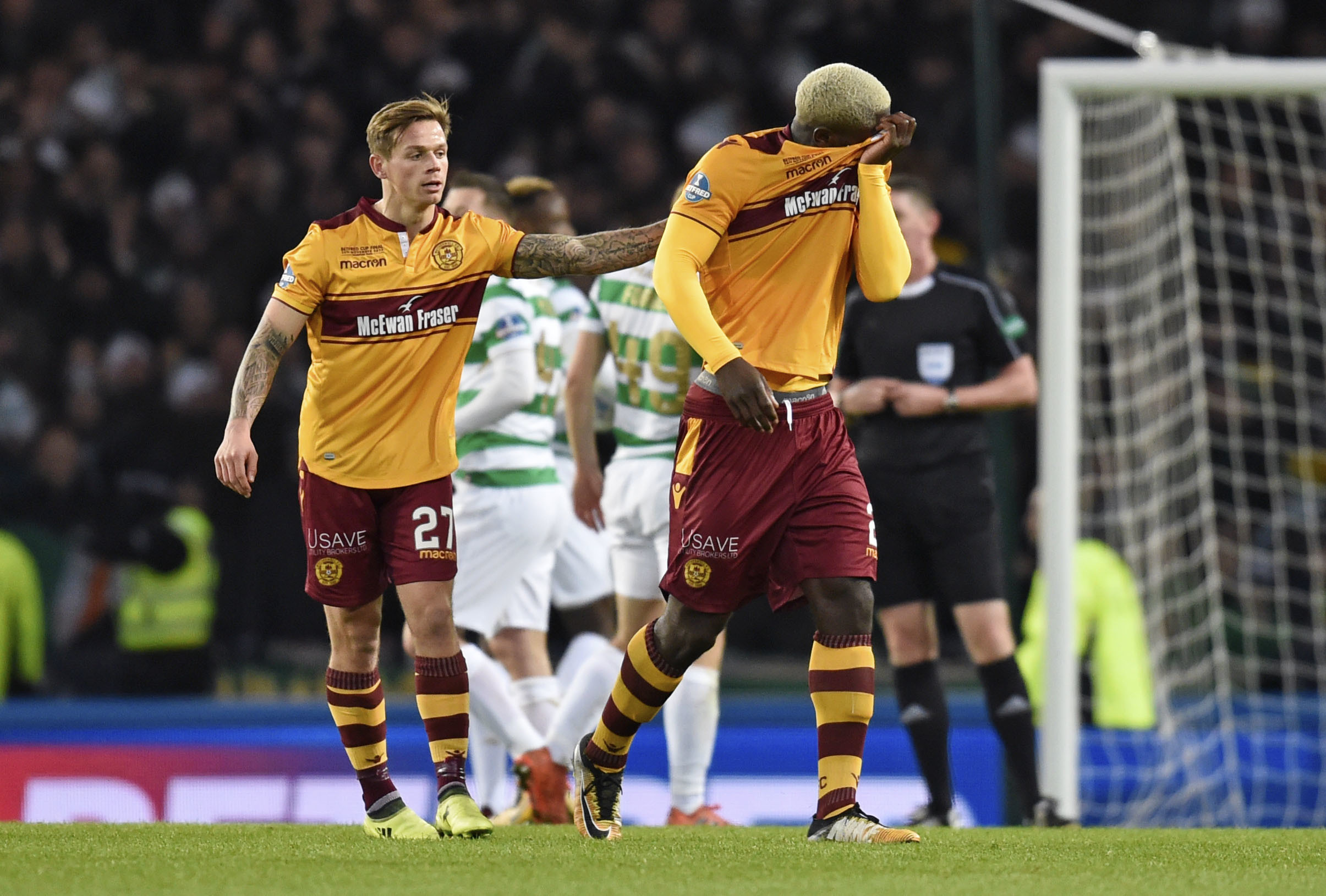
BACK in 2009, I went to great lengths to introduce retrospective punishment for simulation.
It was an issue I felt had to be dealt with as it had been creeping more and more into our game.
Particularly unhelpful had been the number of former professionals appearing on TV and radio with the argument: “Well, there was contact, so the player was entitled to go down”.
That wasn’t correct then. It is not correct now.
The contact has to be enough to bring you down to be a foul and, if it happens in the opposition box, win you a penalty kick.
Anything else is simulation and should be punished as such.
So I have to admit I found the comments of Scott Sinclair in relation to Celtic’s penalty against Motherwell in the Betfred League Cup Final disquieting.
The winger made reference to Cedric Kipre – who was sent off, having put his arm out – and said he felt: “a little bit of contact.”
What he didn’t say was: “I was pulled to the ground”, or “I was unable to stay on my feet”.
The issue is over now.
The Cup went to Celtic and SFA compliance officer Tony McGlennan has decided against using a Notice of Complaint against Sinclair.
I would therefore ask what is the point of having a compliance officer at all? Is any contact at all in the box now a penalty?
You could argue they are there to punish offenders in cases where it can be clearly seen that there is no contact whatsoever.
Even then, I am not sure.
I saw one case this season where a player got his red card rescinded, but the player who had cheated to get him sent off wasn’t punished.
As someone who loves the game and has been in involved in it all my life, I feel strongly that this is a worrying trend.
Players and managers seem happy to go along with using the old: “Well, there was contact” excuse.
I have already mentioned Sinclair’s comments.
It also didn’t escape my notice that the Celtic manager Brendan Rodgers was happy to go along with his player’s argument.
He didn’t have to. He could have just dismissed it by saying you have to play the game to the referee’s whistle, which is inarguable.
True, Kipre had earlier escaped punishment for a bad tackle on Moussa Dembele, which merited a red card and was missed by referee Craig Thomson.
Two wrongs, though, don’t make a right.
It was different when I was playing. Then you only went down when you had no choice.
If you went down too easily, you would get stick from referees, who were hard on players back then.
And from opponents, who definitely would let divers know all about it – and even your own team-mates!
I know this because I can remember wee John MacDonald, who could sometimes perhaps go down a bit easy, getting wound up by the rest of us.
It was only when I went to play abroad that my eyes got opened to what was going on.
It was astonishing. Some of the guys you would come up against deserved an Oscar for the way they threw themselves about.
They would roll about all over the place. I would watch it carefully and I came up with a little test I have found never fails.
Anyone who rolls over more than twice is 100% certain to get up and play on.
The players who are really hurt, meanwhile, lie stock still.
When you see that, you have to worry for their well-being.
And speaking of concern for players’ well-being, surely Wednesday’s Premiership match between Motherwell and Celtic should have rescheduled?
Playing the same opposition twice in a week – Sunday in the Cup Final and then again on the Saturday in the league – would have been just fine.
Three times is just asking for trouble. Things begin to fester between the teams.
Resentment over issues start to build – such as a player being perceived to have dived, for example.

Enjoy the convenience of having The Sunday Post delivered as a digital ePaper straight to your smartphone, tablet or computer.
Subscribe for only £5.49 a month and enjoy all the benefits of the printed paper as a digital replica.
Subscribe